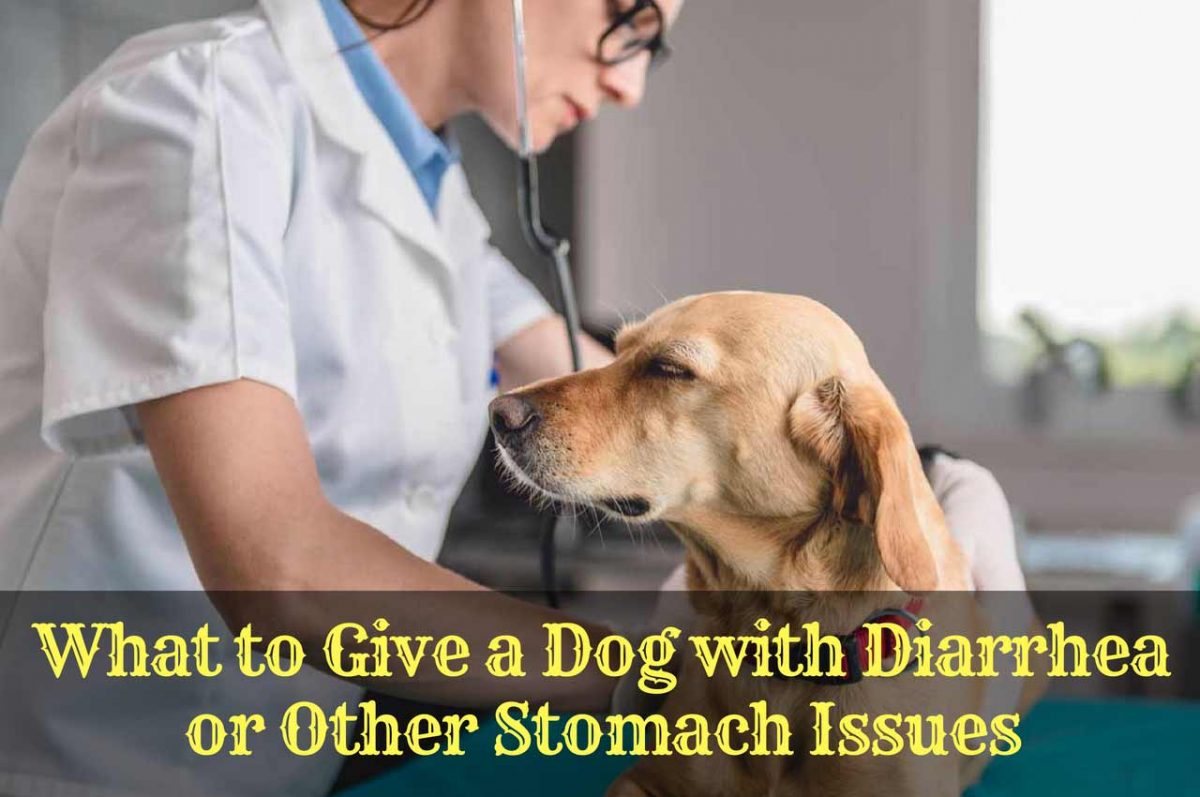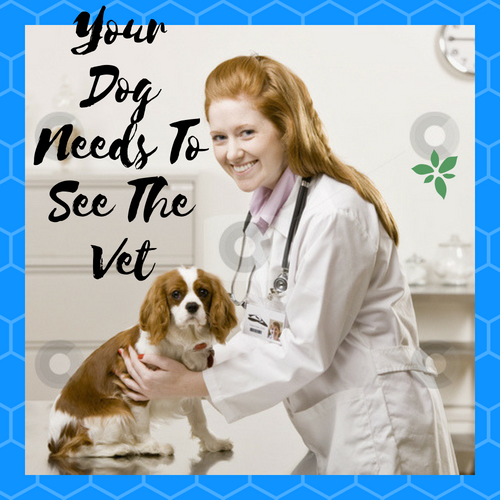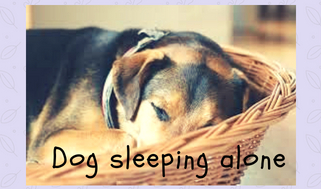If you have ever experienced an upset stomach and very loose stools known as “the runs,” then you understand just how uncomfortable it can be. And it's no different for your furry friend. It's a topic that no one likes to discuss, but chances are you have experienced it at some point in our dog ownership tenure.(You know the stinky, brown puddle of poop.)
The truth is chronic diarrhea in dogs not entirely an uncommon issue. Dogs are known for eating pretty much everything that they can shove down their throats and any one of those foods could make them sick.
In most cases, we hardly pay attention to what our canine friends are up to. Therefore, they will sometimes even rummage through the trash can to find something that they can eat. And, though it may seem like dogs will always be dogs, they have specific nutritional needs, which means that some foods might disrupt their well-balanced system causing a tummy upset.
If you’d like to skip the gross ordeal, we have narrowed down a few remedies that should do the trick. And, although you might not be able to prevent the condition entirely, learning about it equips you with the knowledge you need to handle the situation better the next time it happens.
But first thing’s first.
Understanding the Digestive System of a Dog
At a glance, you’d probably assume that the dog’s digestive system works just like that of a human. However, things are so much different in reality. Sure, both dogs and humans have jaws and salivary enzymes in the digestive system. But unlike with humans, a dog’s jaws are meant for crushing and tearing food while the salivary enzymes play the role of killing bacteria. Upon ingestion, the food passes down the esophagus and enters the dog’s tummy for digestion. In the stomach, the acids are nearly three times stronger than those in the human digestive system that digest the food. Now, the whole process takes about 10 hours before stool can finally be formed.
Causes of Diarrhea
There are multiple reasons why your pooch could be experiencing frequent bouts of chronic diarrhea and loose stools. Some no doubt more serious than others. That said, some of the primary causes of diarrhea include:
Abrupt Changes in Your Pooch’s Diet
If you have changed the pooch’s diet recently, you should know that it takes a couple of days for the changes to settle in. And before the system can adapt to these changes, it may respond by causing diarrhea. Therefore, when it comes to altering the diet or introducing a new diet, your best shot would be to take baby steps. Try altering the snacks first to see how things go with his upset stomach and then move to change the major meals as opposed to completely overhauling the whole menu at once.
An Allergic Reaction
Allergies are much more common in dogs that we may think. Veterinarians suggest that food allergies make up 10% of all dog allergies. And while different dogs react differently to certain types of foods, some common elements are more likely to provoke a reaction than others.
Dietary Discretion
It is a standing debate whether eating trash and spoiled foods can cause diarrhea—especially because some dogs seem to do just fine despite eating the so-called garbage toxicities. However, it is important to note that while some dogs eat trash and spoilt foods and get away with it quite easily, dogs are quite different and will react differently to certain situations. And, although the old adage says you never know till you try, it's better to stay on the safer side of things.
Food Tolerance
When it comes to the dog’s diet, some dogs tend to react differently to different types of foods. In fact, some seem to be intolerant altogether to certain types of food. Therefore, you must ensure that you identify the foods that your pooch seems to be intolerant to and substitute them with better alternatives.
Parasites
When your pooch has a parasite infection, the system might respond by causing diarrhea. And with just a perception that the dog’s immune system is weak, parasites such as hookworms, giardia, roundworms, coccidia, and whip worms may crop up from nowhere and attack your pooch.
Poisonous Food
You may think that your canine friend would be immune to poison but that’s probably only true in fairy tales. If your pooch ingests poisonous food, the system reacts by causing diarrhea and vomiting.

Other causes signs include:
Symptoms of Gastrointestinal Issues
What Dog Poop Can Tell You about Your Dog’s Health
As with humans, there’s a lot you can discover about your dog’s health by simply looking at the poop. More often than not, both the doctor and the veterinary will use a stool to determine whether there are any health concerns and, if there are, what exactly could be causing them. As you try to get to the root of the problem, you should take careful note of the consistency and color of diarrhea so that you can better describe the problem to the vet.
Other Ways to Decipher Poop include:
Frequency
How frequently does your pooch have the runs? Several times in an hour? Minutes? Seconds? Is he straining? All these are vital bits of information to note down as they can be a sign of an inflammation on the large bowel. If he is having the runs three to four times in an hour with large volume, this could simply be a small bowel disorder.
Consistency
On a scale of one to ten, how consistent is the poop? As disgusting as it is, it is important to take note of the consistency so that you can provide the vet with enough information to help them deduce exactly what the problem could be. From this information also, the vet might decide to either perform further tests or prescribe something to help alleviate the problem.
Color
The color of your dog’s poop can tell a lot about the kind of problem you could be dealing with. If its chocolate brown, then it’s fairly normal. However, if you see colors like green, orange, and gray then there could be underlying issues with the pancreas, liver, and gallbladder.
Other information that could be helpful is the content of the stool. For instance, if there’s mucus in the stool, it could be an indication that the colon is inflamed. Also, too much grass in the fecal content could be a sign of gastric upset. In addition, you should also check the size of the stool. Normally, the size of your pup’s poop will be proportionate to the food he ate. If there’s a disconnect, then there’s definitely something wrong.
Home Remedies for Frequent Diarrhea in Dogs
Fasts
In a bid to help alleviate the frequent bouts of diarrhea, you should fast your pooch for about 12–24 hours. During this time, you should give him small amounts of water several times during that duration so as to clear the upset. However, you should have it at the back of your mind that your pooch might not be fit enough to endure a fast. So, to avoid further complications, you should access your pooch first to determine whether a fast is a good idea or not. There are also instances where you could be dealing with a puppy. A puppy, unlike an adult dog, doesn't have physical reserves and so it might not do well with fasting.
Use Probiotics
There’s a lot of evidence that seems to indicate that probiotics boost the functioning of the immune system. So, in most cases when you give your dog probiotics, you are increasing the population of healthy bacteria and encouraging a faster recovery.
Bland Food
Since the pooch has been through a lot, you want to ensure that you take baby steps when reintroducing food to him. And the best way to do so is by giving your dog a bland diet. For starters, give him soup to help with a smooth transition to his regular diet.
Other Cupboard Remedies
Here are some tried and true methods that’ll help normalize your pup’s stool:
When Is it Absolutely Necessary to Head to the Vet?
Discovering that your pooch has bouts of diarrhea is just one part of the battle. You still need to determine whether it’s time to visit a vet or if it’s just a passing problem. If you are wondering whether it’s the right time to check in with the vet, well, that entirely depends with your pooch. The Truth is, some dogs are more prone to digestive disorders than others. So, you might need to determine whether your pooch is one of them. There are, however, telltale signs that can suggest that there’s a much more serious underlying issue that needs to be looked into.
The Bottom Line
Now,it’s quite normal for you to get worried when your canine friend seems to have bouts of diarrhea from time to time. However, you don’t have to worry too much about it. It might be a simple tummy upset that will clear within a few hours. All you have to do is monitor your pooch closely and take note of every little detail just in case it gets worse and you need to check in with a vet.
Also, don’t hesitate to use the simple remedies we have rounded up to help alleviate the problem before checking in with your vet. You might be surprised just how effective some of these simple remedies could end up being.






